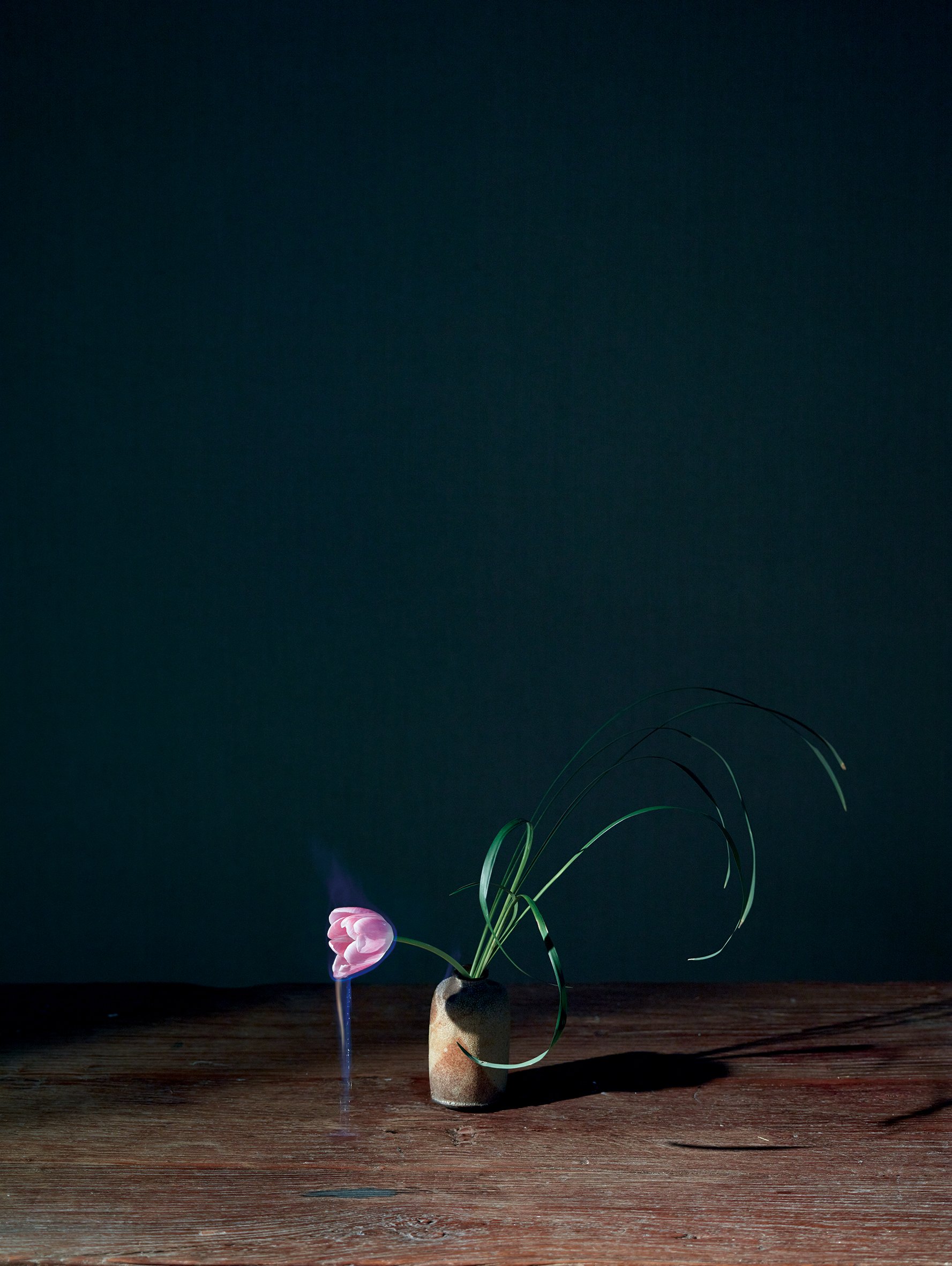jiang zhi
Impermanence of All Things
online group EXHIBITION
February.24 - JUNE.26.2022
Jiang Zhi, Love Letters No.12, 2014, Archival inkjet print, 180x135cm, edition 2 of 5
Jiang Zhi, Love Letters No.07, 2014, Archival inkjet print, 180x135cm, edition 2 of 5
Jiang Zhi: With his photographic series “Love Letters”, Jiang Zhi revisits the genre of still life. He stages two symbolic elements: the flower - symbol of life, nature, beauty and love - and fire - symbol of passions, anger, violence and destruction. In a refined decor, the Chinese artist places his delicate floral arrangements on an antique wooden table. Then he pours a few drops of alcohol on the flowers before igniting them. His images capture that brief moment when the beauty of the flower and the violence of the fire encounter one another.
Here, the artist plays a double role: he strives not only to create a skilful composition to embellish the flower, but also to destroy it. He becomes master of its condition and, of his own will, he accelerates its loss. An interpretation of the artwork then appears: what is the responsibility of the human hand for the fate of nature?
“Beautiful things and objects themselves
will ultimately disappear, but the
beauty itself will live on, as well as love.
Perhaps this is what I am trying to express.”
- Jiang Zhi Interview from My Modern Met
Jiang Zhi, Love Letters No.15, 2014, rgb.edit Archival inkjet print, 180x135cm, edition 1_5.
But "Love Letters" reads first and foremost like a Memento Mori, a macabre metaphor for the ephemeral nature of existence, of the impermanence of all things. Like these flowers, man is doomed to disappear. It is the universal cycle of life and death. It is also the balance of all things, of all energy. In Taoist thought, life cannot be considered without death, and death cannot be contemplated without life. Disappearance breeds rebirth. Thus, the ashes of the consumed flower will become fertile ground for life, for a new sparkle of beauty.
Portrait of Jiang Zhi. Courtesy of the artist.




